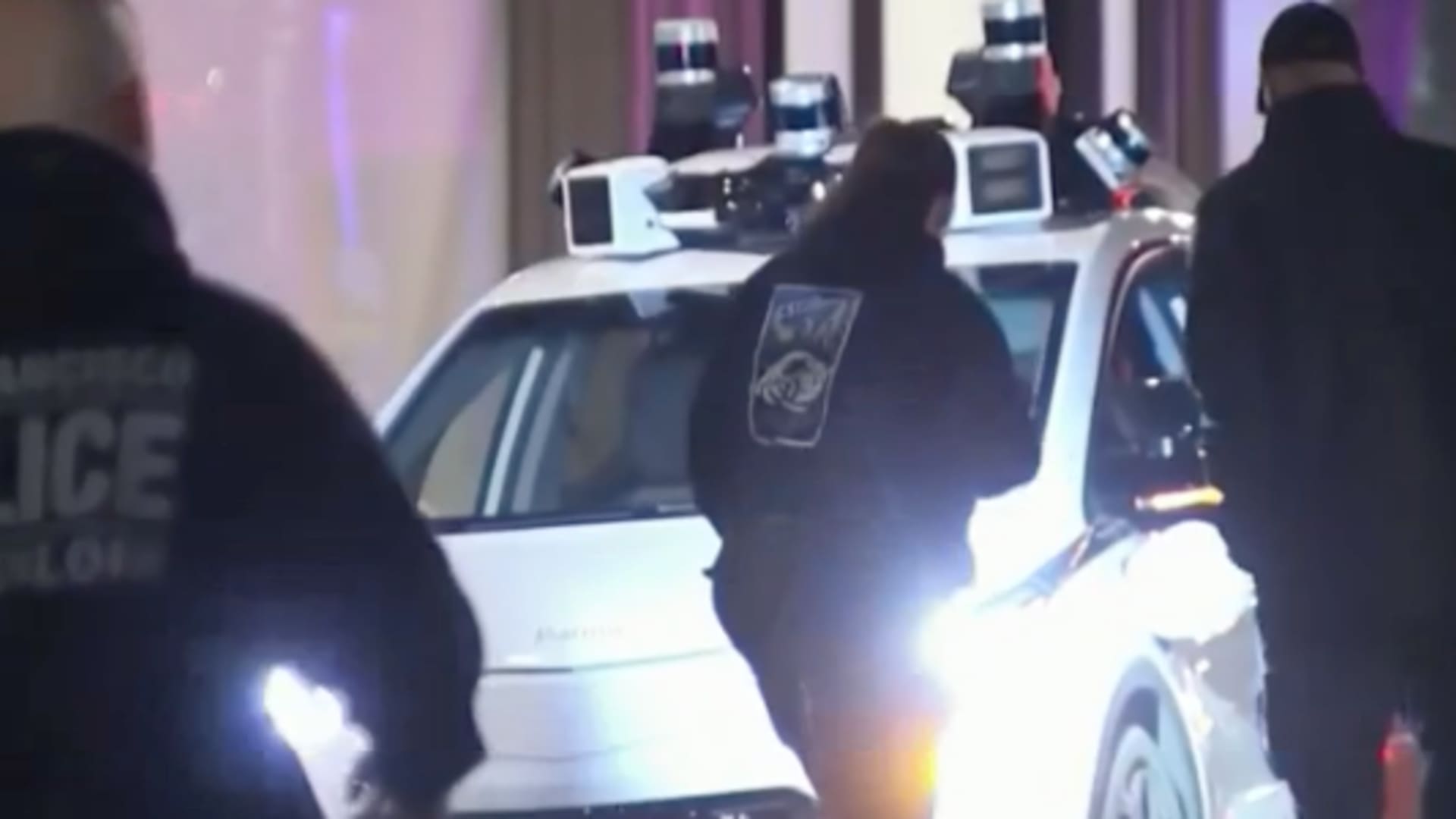Federal regulators have opened a preliminary investigation into whether Cruise autonomous cars exercised “appropriate caution” in and around pedestrians, the National Highway Traffic Safety Administration wrote in a filing.
The NHTSA probe was prompted by two reports involving pedestrian injuries and Cruise vehicles in recent months. The agency also cited two other incidents it identified through “videos posted to public websites,” according to the filing. NHTSA opened the probe into Cruise, a subsidiary of General Motors, on Monday.
One incident on Oct. 2 involved a situation where a pedestrian was thrown by another vehicle into the path of a driverless Cruise vehicle. That incident matches the details of a hit-and-run crash in San Francisco, which resulted in one pedestrian being transported to the hospital.
At the time of the incident, the company said its autonomous vehicle braked “aggressively” and that it was “actively working” with San Francisco police to identify the hit-and-run driver. Cruise said it had spoken with the NHTSA about the Oct. 2 incident and provided it with video footage, adding that the regulator had not raised further questions.
The other incident occurred in August. According to the incident report, a Cruise autonomous vehicle moving at a speed of about 1.4 miles per hour struck a pedestrian who stepped into a crosswalk after the stoplight had turned green, and the vehicle was allowed to proceed, according to the incident report. The pedestrian was then transported by emergency medical services. The company also said the pedestrian was transported after experiencing knee pain.
Cruise said the NHTSA had not spoken with the company about the August incident or the two incidents apparently posted on social media.
“Cruise’s safety record over 5 million miles continues to outperform comparable human drivers at a time when pedestrian injuries and deaths are at an all-time high,” Cruise spokesperson Hannah Lindow said in a statement to CNBC. “Cruise communicates regularly with NHTSA and has consistently cooperated with each of NHTSA’s requests for information — whether associated with an investigation or not — and we plan to continue doing so.”
The company, alongside Alphabet subsidiary Waymo, has been deploying its vehicles across San Francisco for months. Critics of the autonomous driving rollout, including some San Francisco emergency responders, have cited incidents where driverless vehicles have obstructed emergency vehicles.
Proponents have argued that driverless vehicles are safer than human-driven ones. Other companies, including some based in China, are also testing driverless vehicles on San Francisco streets.
Don’t miss these CNBC PRO stories:
- This bank just hiked its 1-year CD rate to a fresh high
- A low-cost way to protect against an S&P 500 drawdown as risks escalate
- How to invest $1 million for the next decade, according to private bankers and wealth advisors
- This highly profitable industry is booming as the population ages
- Bank of America sees risks for employers as insurance coverage of weight loss drugs grows

side effects of ivermectin – tegretol brand tegretol 200mg brand
order amoxicillin generic – diovan 80mg oral order ipratropium 100mcg without prescription
order zithromax without prescription – nebivolol price nebivolol order
neurontin 600mg cheap – order clomipramine 50mg for sale itraconazole for sale online
generic lasix – buy furosemide without prescription diuretic buy generic betamethasone
monodox online – acticlate generic order glucotrol 5mg
buy generic clavulanate online – oral nizoral order cymbalta 40mg generic
oral semaglutide – oral periactin 4mg order periactin for sale
zanaflex ca – order hydrochlorothiazide 25 mg sale buy generic microzide over the counter
cialis 10mg pill – sildenafil 50mg cost viagra 100mg for sale
sildenafil 100mg for sale – cialis 10mg cost cialis mail order
generic cenforce – cenforce order online order metformin 500mg pills
methylprednisolone where to buy – buy lyrica pills for sale order triamcinolone 10mg without prescription
desloratadine over the counter – order priligy 90mg pill buy dapoxetine 60mg generic
order misoprostol sale – buy orlistat 120mg sale order diltiazem 180mg without prescription
acyclovir 400mg ca – buy generic rosuvastatin online order crestor 10mg pill